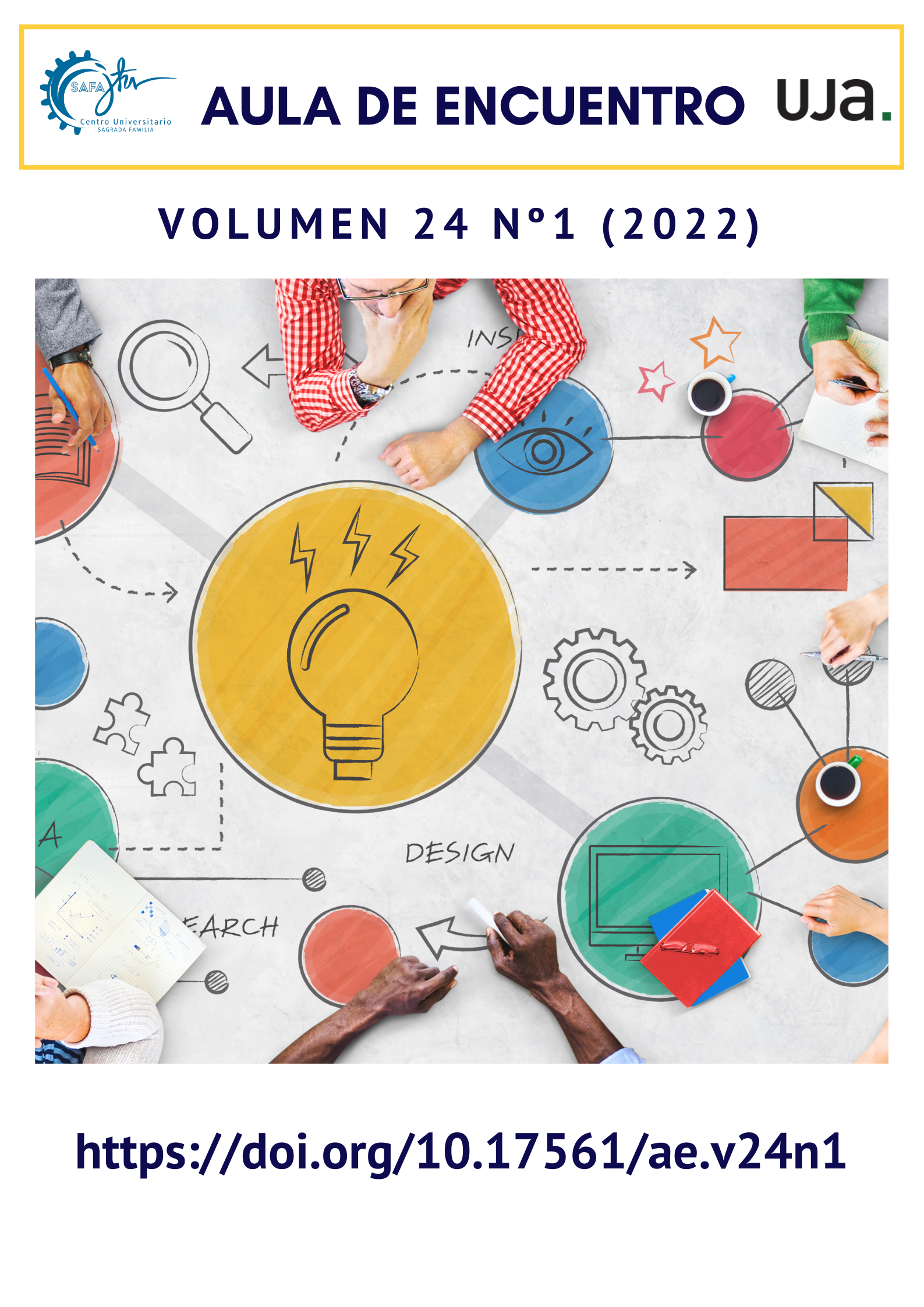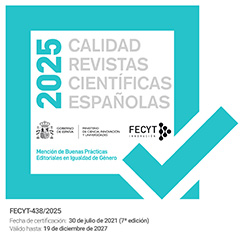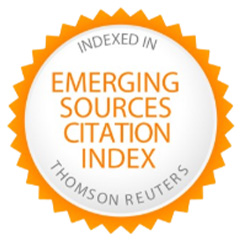Fostering intercultural competence in a university classroom: working on historical empathy through the work the thing around your neck by Chimamanda Ngozi Aadichie
DOI:
https://doi.org/10.17561/ae.v24n1.6273Palabras clave:
Educación Intercultural, empatía histórica, Literaturas Africanas, coeducaciónResumen
Historical empathy is defined as the process of cognitive and affective commitment that students acquire with historical figures to understand their experiences, decision-making and actions. Historical empathy involves understanding how people in the past thought, felt, decided, acted, and faced consequences within a specific historical and social context. In this way, historical empathy is a fundamental tool for the paradigm shift in historical teaching that connects three processes: historical contextualization, perspective taking, and affective connection. In this way, the proposal we present has two objectives: to work historical empathy from literature, a novel and unique approach, and to work it in a university classroom. We consider that due to the exclusion that women have traditionally suffered, their literature is the most pertinent for the development of this proposal. For this reason, we will use the short-story “A Private Experience”, included in The Thing Around Your Neck by Chimamanda Ngozi Adichie.
Descargas
Referencias
Adichie, C. N. (2009a). A Private Experience. In The Thing Around Your Neck. (pp. 43–56). Harper Collins.
Adichie, C. N. (2009b, July) TEDGlobal: The danger of a single story. https://www.ted.com/talks/chimamanda_ngozi_adichie_the_danger_of_a_single_story
Aguado, M. T. (2003) Pedagogía intercultural. McGraw-Hill.
AlJazeera (2010, October 3). Independence Day: Becoming Nigerian. https://www.aljazeera.com/programmes/africa-statesindependence/2010/09/2010921124113186780.html
Anderson, L. W. (2014). A taxonomy for learning, teaching, and assessing: A revision of Bloom’s taxonomy of educational objectives. Pearson.
Aidoo, A. A. (1992). The African Woman Today. Dissent, 39, 319–325.
Ballester Roca, J. & Ibarra Ruis, N. (2015). La formación lectora y literaria en contextos multiculturales. Una perspectiva educativa e inclusiva. Teoría de la educación, 27(2), 161–183. http://dx.doi.org/10.14201/teoredu2015272161183
Benet Gil, A., Molinet García, M. O & Sales Ciges, M. A. (2020). Cómo somos, qué queremos y compartimos. Percepciones y creencias acerca de la cultural intercultural inclusiva que promueve la universidad. Revista de la Educación Superior, 193(49), 25–43. https://doi.org/10.36857/resu.2020.193.1031
Biafran War Memories Project (n.d). https://biafranwarmemories.com/
Brooks, S. (2011). Historical empathy as perspective recognition and care in one secondary social studies classroom. Theory & Research in Social Education, 39(2), 166–202. https://doi.org/10.1080/00933104.2011.10473452
DARA (n.d.). Documentos y Archivos de Aragón. Archivo Fundación Bernardo Aladrén. http://dara.aragon.es/opac/app/results/afba;jsessionid=Md1xh27JaAjDfCQL_iKws9NcuCzmKPLlkCA9yiLQaBci-SA85WnX!-91474425?ob=re:1&q=audios&ft=descriptor:Guerra+Civil+Espa%C3%B1ola+%281936-1939%29
Davis, O. L. (2001). In pursuit of historical empathy. In Davis, O. L., Yeager, E. A., & Foster, S. J. (Eds.). Historical Empathy and Perspective Taking in the Social Studies (pp. 1–12). Rowman & Littlefield Publishers.
Doppen, F. (2000). Teaching and learning multiple perspectives: The atomic bomb. The Social Studies, 91, 159–169. https://doi.org/10.1080/00377990009602461
Eisenberg, N. (2000). Empathy. In K. E. Alan (Ed.), Encyclopedia of psychology (Vol. 3) (pp. 179–182). APA. https://doi.org/10.1037/10518-067
Endacott, J. L. (2010). Reconsidering affective engagement in historical empathy. Theory & Research in Social Education, 38(1), 6–49. https://doi.org/10.1080/00933104.2010.10473415
Endacott, J., & Brooks, S. (2013). An updated theoretical and practical model for promoting historical empathy. Social Studies Research and Practice, 8(1), 41–58. https://doi.org/10.1108/SSRP-01-2013-B0003
Endacott, J. L., & Sturtz, J. (2015). Historical empathy and pedagogical reasoning. The journal of social studies research, 39(1), 1–16. https://doi.org/10.1016/j.jssr.2014.05.003
Eze, C. (2016). Ethics and Human Rights in Anglophone African Women’s Literature. Palgrave McMillan. https://doi.org/10.1007/978-3-319-40922-1
Field, S. L. (2001). Perspectives and elementary social studies: practice and promise. In Davis, O. L., Yeager, E. A., & Foster, S. J. (Eds.). Historical Empathy and Perspective Taking in the Social Studies (pp. 115–138). Rowman & Littlefield Publishers.
Foster, S. (1999). Using historical empathy to excite students about the study of history: Can you empathize with Neville Chamberlain? The Social Studies, 90(1), 18–24. https://doi.org/10.1080/00377999909602386
Gaya Best, S. & Rakodi, C. (2011) Violent Conflict and its Aftermath in Jos and Kano, Nigeria: What is the Role of Religion? (working paper). UKAID, Religions and Development Research Program.
Handelsman, M. (2021). Literature and Interculturality. A Proposal for Possible Reading Otherwise. Journal of Latin American Cultural Studies, 30(1), 75–89. https://doi.org/10.1080/13569325.2021.1911791
Heerten, L. & Moses, A.D. (2014). The Nigeria—Biafra war: postcolonial conflict and the question of genocide, Journal of Genocide Research, 16(2-3), 169–203. https://doi.org/10.1080/14623528.2014.936700
Kisida, B., Goodwin, L., & Bowen, D. H. (2020). Teaching history through Theater: the effects of arts integration on student’s knowledge and attitudes. AERA Open, 6, 1–11. https://doi.org/10.1177%2F2332858420902712
Levstik, L. S. & Barton, K. C. (2011). (4th ed.). Doing history: Investigating with children in elementary and middle schools. Lawrence Erlbaum.
Llona González, M. (2012). Historia oral: la exploración de las identidades a través de la historia de vida. In Llona González M. (edit.). Entreverse. Teoría y metodología práctica de las fuentes orales (pp. 15–60). Universidad del País Vasco.
Montemayor Ruiz, S. (edit.) (2008). La novela histórica como recurso didáctico para las ciencias sociales. Ministerio de Educación Cultura y Deporte.
Nnaemeka, O. (1994) From Orality to Writing: African Women Writers and the (Re)Inscription of Womanhood. Research in African Literatures, 25(4), 137–157. Retrieved from: https://www.jstor.org/stable/3819872
Orenga Caleri, S. (2015). Fotografía y fuentes orales. Un análisis metodológico. In Colomer Rubio, J.C., Esteve Martí, J. & Ibáñez Domingo, M. (edit.), Ayer y hoy: Debates, historiografía y didáctica de la Historia (pp. 66–70). Asociación de Historia Contemporánea, Universitat de València.
PARES (n.d.). Archivo Fotográfico de la Delegación de Propaganda de Madrid. http://pares.mcu.es/ArchFotograficoDelegacionPropaganda/inicio.do
Seixas, P. (2017). A Model of Historical Thinking. Educational Philosophy and Theory, 49(6), 593–605. https://doi.org/10.1080/00131857.2015.1101363
Seixas, P., & Morton, T. (2013). The big six historical thinking concepts. Nelson Education.
Showalter, E. (1971). Women and the Literary Curriculum. College English, 32(8), 855–862. https://doi.org/10.2307/375623
Showalter, E. (1998). Twenty Years On: “A Literature of Their Own” Revisited. NOVEL: A Forum on Fiction, 31(3), 399–413. https://doi.org/10.2307/1346107
SIPCA (n.d.). Enrique Satué Olivan. Testimonios de aquel Pirineo. http://www.sipca.es/censo/resultados_busqueda_oral_avanzada.html?tipobien=IAL&accion=BUSCAR_BIENES&tesis%5B%5D=1-1211
Stoddard, J. D. (2012). Film as a ‘thoughtful’ medium for teaching history. Learning, Media and Technology, 37(3), 271–288. https://doi.org/10.1080/17439884.2011.572976
Subirats, M. (2017). Coeducación, apuesta por la libertad. Octaedro.
Thiong'o, N. W. (1993). Moving the Centre. The Struggle for Cultural Freedoms. James Currey Publishers.
Traver Martí, J.A., & García López, R. (2004). La enseñanza-aprendizaje de la actitud de solidaridad en el aula. Una propuesta de trabajo centrada en la aplicación de la técnica puzzle de Aronson. Revista española de pedagogía, 62(229), 419–438.
Waggeh, F. (2013, September 23). TEDxGallation: Africa Post-Colonial Development. https://www.youtube.com/watch?v=s7lmz4UL4wE
Walsh, C. (2009) Interculturalidad, estado, sociedad. Luchas (de)coloniales de nuestra época. Universidad Andina Simón Bolívar y Ediciones Abya-Yala.
Zulfiqar, S. (2016). African Women Writers and the Politics of Gender. Cambridge Scholars Publishing.
Descargas
Publicado
Número
Sección
Licencia
Derechos de autor 2022 Andrea Perales Fernández de Gamboa, Dorleta Apaolaza-Llorente, María Orcasitas-Vicandi

Esta obra está bajo una licencia internacional Creative Commons Atribución 4.0.
Los autores que publican en esta revista están de acuerdo con los siguientes términos:
- Los autores conservan los derechos de autor y garantizan a la revista el derecho de ser la primera publicación del trabajo al igual que licenciado bajo una Creative Commons Attribution License que permite a otros compartir el trabajo con un reconocimiento de la autoría del trabajo y la publicación inicial en esta revista.
- Los autores pueden establecer por separado acuerdos adicionales para la distribución no exclusiva de la versión de la obra publicada en la revista (por ejemplo, situarlo en un repositorio institucional o publicarlo en un libro), con un reconocimiento de su publicación inicial en esta revista.
- Se permite y se anima a los autores a difundir sus trabajos electrónicamente (por ejemplo, en repositorios institucionales o en su propio sitio web) antes y durante el proceso de envío, ya que puede dar lugar a intercambios productivos, así como a una citación más temprana y mayor de los trabajos publicados (Véase The Effect of Open Access) (en inglés).
![]()
Este obra está bajo una licencia de Creative Commons Reconocimiento 4.0 Internacional.















